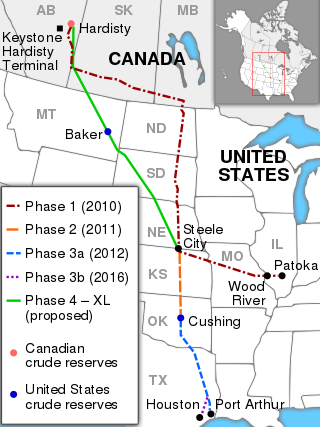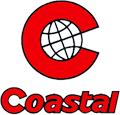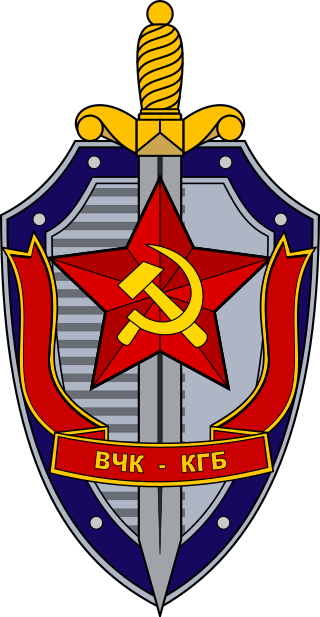Notes
- 1 2 Ratner, Paul (10 February 2019). "Top 5 KGB operations on U.S. soil". Big Think .
- ↑ Andrew, Christopher (1999). The Sword and the Shield. Basic Books. p. 364. ISBN 0-465-00312-5.
Operation Cedar (Operation KEDR) was the name used by Russian defector Vasili Mitrokhin for an alleged covert program by the KGB against the United States during the Cold War. The program is mentioned in the Mitrokhin Archive which doesn't explain why Operation Cedar didn't happen. [1]
The program supposedly took 13 years of preparation (1959-1972) and was intended to seriously disrupt United States power supply. The KGB would allegedly destroy:
The operation supposedly began with the Ottawa residency in 1959. Mitrokhin claimed it involved immensely detailed reconnaissance of oil refineries and gas pipelines across Canada from British Columbia to Montreal. According to his account, each of the potential targets was photographed from several angles and the vulnerable points were identified. In addition, the most suitable approach roads for sabotage operations along with the best getaway routes, were carefully plotted on small-scale maps. [2]

Gulf Oil was a major global oil company in operation from 1901 to 1985. The eighth-largest American manufacturing company in 1941 and the ninth largest in 1979, Gulf Oil was one of the Seven Sisters oil companies. Prior to its merger with Standard Oil of California, Gulf was one of the chief instruments of the Mellon family fortune; both Gulf and Mellon Financial had their headquarters in Pittsburgh, Pennsylvania, with Gulf's headquarters, the Gulf Tower, being Pittsburgh's tallest building until the completion of the U.S. Steel Tower.
Koch Industries, Inc. is an American multinational conglomerate corporation based in Wichita, Kansas, and is the second-largest privately held company in the United States, after Cargill. Its subsidiaries are involved in the manufacturing, refining, and distribution of petroleum, chemicals, energy, fiber, intermediates and polymers, minerals, fertilizer, pulp and paper, chemical technology equipment, cloud computing, finance, raw materials trading, and investments. Koch owns Flint Hills Resources, Georgia-Pacific, Guardian Industries, Infor, Invista, KBX, Koch Ag & Energy Solutions, Koch Engineered Solutions, Koch Investments Group, Koch Minerals & Trading, and Molex. The firm employs 122,000 people in 60 countries, with about half of its business in the United States.

Oil sands, tar sands, crude bitumen, or bituminous sands, are a type of unconventional petroleum deposit. Oil sands are either loose sands or partially consolidated sandstone containing a naturally occurring mixture of sand, clay, and water, soaked with bitumen, a dense and extremely viscous form of petroleum.

Active measures is a term used to describe political warfare conducted by the Soviet Union and the Russian Federation. The term, which dates back to the 1920s, includes operations such as espionage, propaganda, sabotage and assassination, based on foreign policy objectives of the Soviet and Russian governments. Active measures have continued to be used by the administration of Vladimir Putin.
Petroleum production in Canada is a major industry which is important to the overall economy of North America. Canada has the third largest oil reserves in the world and is the world's fourth largest oil producer and fourth largest oil exporter. In 2019 it produced an average of 750,000 cubic metres per day (4.7 Mbbl/d) of crude oil and equivalent. Of that amount, 64% was upgraded from unconventional oil sands, and the remainder light crude oil, heavy crude oil and natural-gas condensate. Most of the Canadian petroleum production is exported, approximately 600,000 cubic metres per day (3.8 Mbbl/d) in 2019, with 98% of the exports going to the United States. Canada is by far the largest single source of oil imports to the United States, providing 43% of US crude oil imports in 2015.
The Mitrokhin Archive refers to a collection of handwritten notes about secret KGB operations spanning the period between the 1930s and 1980s made by KGB archivist Vasili Mitrokhin which he shared with the British intelligence in the early 1990s. Mitrokhin, who had worked at KGB headquarters in Moscow from 1956 to 1985, first offered his material to the US' Central Intelligence Agency (CIA) in Latvia, but they rejected it as possible fakes. After that, he turned to the UK's MI6, which arranged his defection from Russia.

Canada has access to all main sources of energy including oil and gas, coal, hydropower, biomass, solar, geothermal, wind, marine and nuclear. It is the world's second largest producer of uranium, third largest producer of hydro-electricity, fourth largest natural gas producer, and the fifth largest producer of crude oil. In 2006, only Russia, the People's Republic of China, the United States and Saudi Arabia produce more total energy than Canada.

The Keystone Pipeline System is an oil pipeline system in Canada and the United States, commissioned in 2010 and owned by TC Energy and, as of March 2020, the Government of Alberta. It runs from the Western Canadian Sedimentary Basin in Alberta to refineries in Illinois and Texas, and also to oil tank farms and an oil pipeline distribution center in Cushing, Oklahoma.

Petroleum transport is the transportation of petroleum and derivatives such as gasoline (petrol). Petroleum products are transported via rail cars, trucks, tanker vessels, and pipeline networks. The method used to move the petroleum products depends on the volume that is being moved and its destination. Even the modes of transportation on land such as pipeline or rail have their own strengths and weaknesses. One of the key differences are the costs associated with transporting petroleum though pipeline or rail. The biggest problems with moving petroleum products are pollution related and the chance of spillage. Petroleum oil is very hard to clean up and is very toxic to living animals and their surroundings.

Canada–Russia relations are the bilateral relations between Canada and Russia, the world's two largest countries in terms of area. Due to the 2022 Russian invasion of Ukraine, relations became very tense after Canada imposed sanctions against Russia. Russia placed Canada on a list of "unfriendly countries", along with Taiwan, South Korea, Japan, Singapore, the United States, European Union members, NATO members, Australia, New Zealand, Switzerland, Micronesia and Ukraine.

Coastal Corporation was a diversified energy and petroleum products company headquartered at 9 Greenway Plaza in Greenway Plaza, Houston, Texas. The company was founded in 1955 by Oscar Wyatt and incorporated in 1955 as Coastal States Gas Producing Company. It merged with the El Paso Corporation in 2001. As of 1999, Coastal was a Fortune 500 company with 13,300 employees and annual revenues of $8.2 billion.

BP p.l.c. is a British multinational oil and gas company headquartered in London, England. It is one of the oil and gas "supermajors" and one of the world's largest companies measured by revenues and profits. It is a vertically integrated company operating in all areas of the oil and gas industry, including exploration and extraction, refining, distribution and marketing, power generation, and trading.

Petroleum has been a major industry in the United States since the 1859 Pennsylvania oil rush around Titusville, Pennsylvania. Commonly characterized as "Big Oil", the industry includes exploration, production, refining, transportation, and marketing of oil and natural gas products. The leading crude oil-producing areas in the United States in 2023 were Texas, followed by the offshore federal zone of the Gulf of Mexico, North Dakota and New Mexico.
The Soviet Union and some communist states have sponsored international terrorism on numerous occasions, especially during the Cold War. NATO and also the Italian, German and British governments saw violence in the form of "communist fighting organizations" as a serious threat.

The Committee for State Security was the main security agency for the Soviet Union from 13 March 1954 until 3 December 1991. As a direct successor of preceding agencies such as the Cheka, GPU, OGPU, NKGB, NKVD and MGB, it was attached to the Council of Ministers. It was the chief government agency of "union-republican jurisdiction", carrying out internal security, foreign intelligence, counter-intelligence and secret police functions. Similar agencies operated in each of the republics of the Soviet Union aside from the Russian SFSR, where the KGB was headquartered, with many associated ministries, state committees and state commissions.
Russian espionage in the United States has occurred since at least the Cold War, and likely well before. According to the United States government, by 2007 it had reached Cold War levels.
Soviet and Russian influence operations in Canada are clandestine operations conducted by Russian government and government-affiliated entities against Canada. These operations have continued through 2022.
Western Canadian Select (WCS) is a heavy sour blend of crude oil that is one of North America's largest heavy crude oil streams and, historically, its cheapest. It was established in December 2004 as a new heavy oil stream by EnCana, Canadian Natural Resources, Petro-Canada and Talisman Energy. It is composed mostly of bitumen blended with sweet synthetic and condensate diluents and 21 existing streams of both conventional and unconventional Alberta heavy crude oils at the large Husky Midstream General Partnership terminal in Hardisty, Alberta. Western Canadian Select—the benchmark for heavy, acidic crudes—is one of many petroleum products from the Western Canadian Sedimentary Basin oil sands. Calgary-based Husky Energy, now a subsidiary of Cenovus, had joined the initial four founders in 2015.
Operation PANDORA is the name used by Russian defector Vasili Mitrokhin for an alleged active measure by the KGB against the United States during the Cold War. The intention was supposedly to start a race war that would consume and self-destruct the United States.